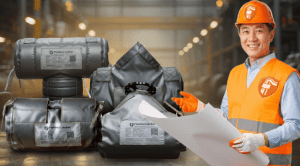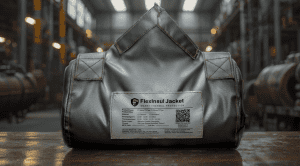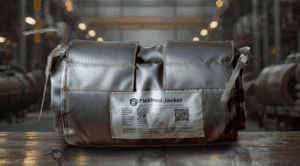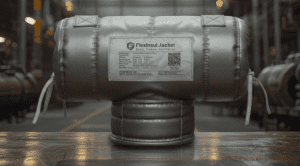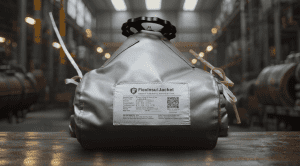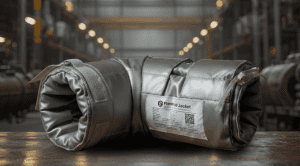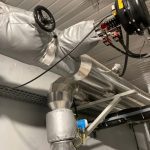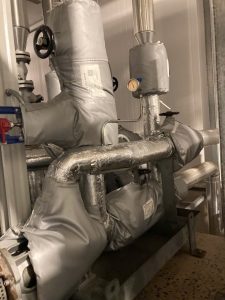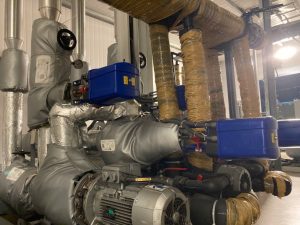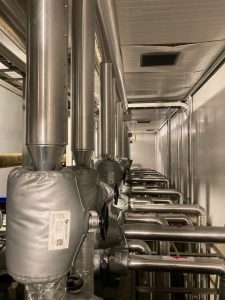The Importance of Adhering to International Standards for Insulation Jackets
Selecting a removable insulation jacket involves more than just technical specifications; it requires adherence to strict international standards. This is a crucial factor in controlling temperature, saving energy, and ensuring the operational safety of machinery and pipelines.
Understanding common standards systems like ASTM, ISO, and EN helps businesses ensure products achieve consistent quality, stable performance, and maximum safety. These standards provide a unified framework for evaluating key material properties such as thermal insulation, fire resistance, mechanical strength, and chemical safety.
Common International Standards Systems
In the industrial insulation industry, the three most widely recognized and applied standards systems are ASTM, ISO, and EN. Each system has its own regulations, but all share the common goal of standardizing and ensuring product quality.
ASTM Standards (American Society for Testing and Materials)
ASTM International is a leading global organization for the development of voluntary consensus standards, originating from the United States. ASTM standards for insulation materials are highly detailed, focusing on specific test methods to accurately determine material properties.
- ASTM C177: A method for measuring the thermal conductivity (K-value) of a material using a guarded-hot-plate apparatus. This is considered the gold standard for determining insulation capability.
- ASTM C518: Similar to C177 but uses a heat flow meter apparatus, providing faster results and is often used for production quality control (QC).
- ASTM E84: A test method for surface burning characteristics, evaluating the flame spread index and smoke developed index. This is an extremely important standard for fire safety.
- ASTM C411: Determines the long-term high-temperature resistance of insulation materials, ensuring the material does not deform or lose its effectiveness during operation.
ISO Standards (International Organization for Standardization)
ISO is an international standardization body that issues globally recognized standards, helping to harmonize national regulations and promote international trade.
- ISO 9001: A standard for quality management systems. A manufacturer with ISO 9001 certification demonstrates a commitment to consistent production processes and reliable product quality.
- ISO 8301 & ISO 8302: Equivalent to ASTM C177 and C518, these standards specify methods for determining the thermal resistance and conductivity of materials.
- ISO 1182: A non-combustibility test for materials. Materials must meet very strict criteria to be classified as non-combustible under this standard.
EN Standards (European Standards)
These are technical standards approved by the member states of the European Union (EU). Products intended for circulation in the European market must comply with the relevant EN standards.
- EN 13501-1: A classification system for the reaction to fire of construction products, using the “Euroclass” system (from A1 – non-combustible to F – easily flammable). This standard is more complex and comprehensive than ASTM E84.
- EN 12667: A European standard for determining the thermal performance of materials, equivalent to ASTM and ISO standards for measuring thermal conductivity.
- EN 45545: An important specific standard that sets strict fire protection requirements for materials and components used on railway vehicles and public transport.
Guide to Selecting the Appropriate Standard
Choosing which standard an insulation jacket must comply with depends on several practical factors:
- Target market: Products exported to Europe need to meet EN standards, while the North American market and many other regions often require ASTM compliance.
- Industry sector: Specific industries such as marine, oil and gas, chemical, or railway will have distinct and mandatory standard requirements.
- Safety requirements: Environments with high fire risks demand materials that meet the strictest fire resistance standards, such as EN 13501-1 (Class A1, A2) or ASTM E84 (Class A/Class 1).
By understanding and correctly applying international standards, businesses not only improve the quality of their insulation jackets but also build credibility, competitive advantage, and ensure maximum safety for their operational systems.
Request consultation and quotation now!Frequently Asked Questions
What are ASTM standards?
ASTM (American Society for Testing and Materials) is a U.S. standards organization that develops and publishes technical standards based on detailed test methods to determine material properties.
How can you tell if an insulation material has good fire resistance?
You should look for certifications according to fire resistance standards such as ASTM E84 (which evaluates flame spread and smoke development) or EN 13501-1 (which classifies materials into levels from A1 to F).
What is the main difference between ASTM E84 and EN 13501-1 standards?
ASTM E84 is common in North America and focuses on flame spread and smoke developed indices. EN 13501-1 is a European standard that uses a more complex and comprehensive “Euroclass” system (A1, A2, B, C, D, E, F), which also considers factors like flaming droplets/particles.
Why is ISO 9001 certification important for an insulation jacket manufacturer?
ISO 9001 is not a product standard, but a quality management system standard. It ensures the manufacturer has consistent processes for production, control, and improvement, thereby creating products of uniform and reliable quality.
What is thermal conductivity (K-value) and why is it important?
Thermal conductivity (K-value) is an indicator of a material’s ability to conduct heat. The lower the K-value, the better the insulation material. Standards like ASTM C177 and ISO 8301 are used to measure this important metric.

